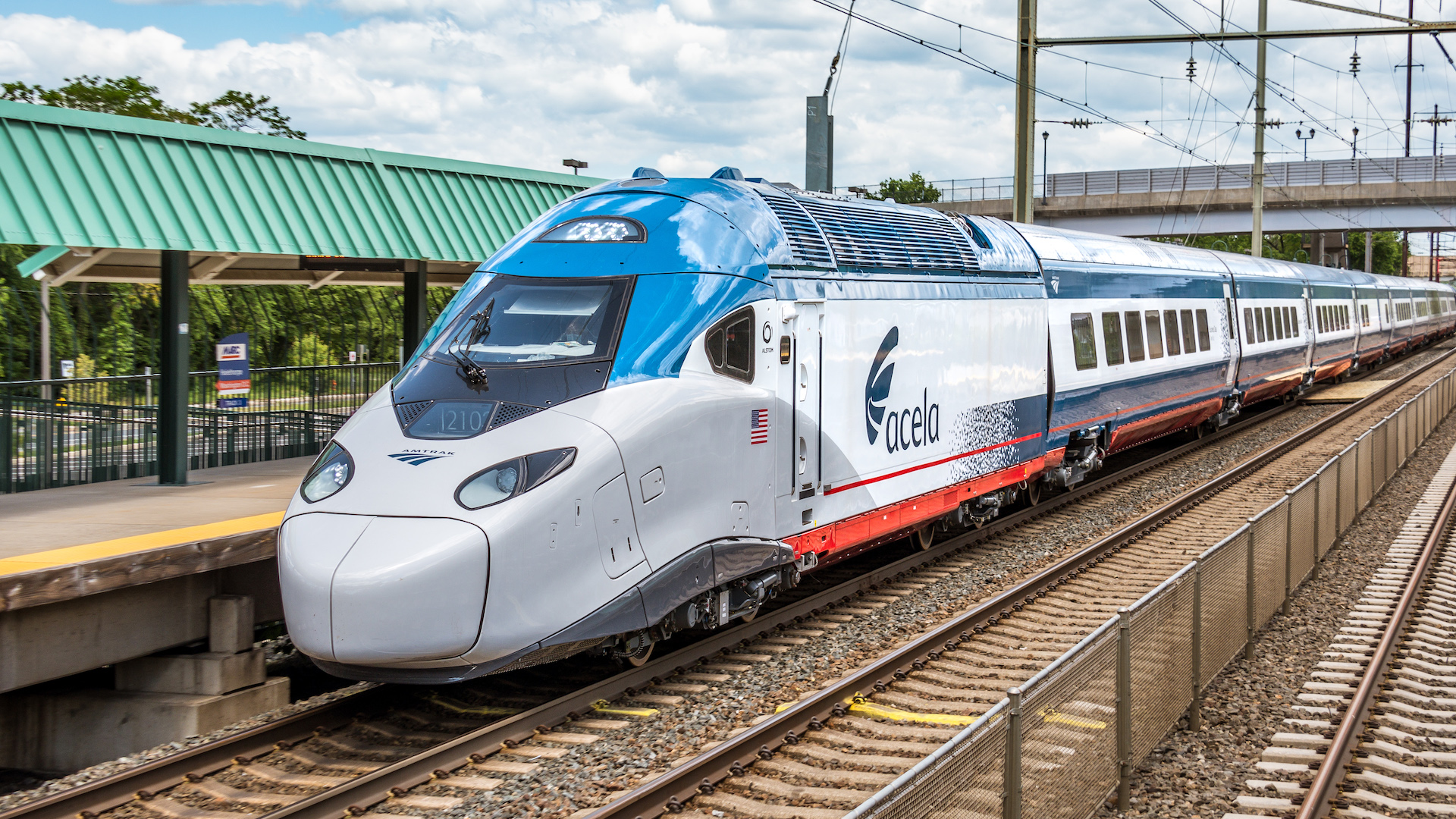

Acela, Amtrak’s high-speed trains in the heavily trafficked Northeast Corridor, forms the core of the national rail network’s ridership and revenue. It’s currently underway on a $2.3 billion program that’ll upgrade Acela’s trains to larger, faster units with more seating and service speeds up to 160 mph. However, Amtrak’s biggest investment in history is already three years late entering service, and looks certain for further delay with federal inspection turning up problems with every next-generation Acela trainset built so far.
The new trains’ problems were documented in a recent audit report from the Amtrak Office of Inspector General. Initially planned to enter service in 2021, the Alstom-built Avelia Liberty (a relative of the TGV M) is now scheduled to first carry passengers in 2024, but will “likely” face further delay. That’s because every one of the 12 new trainsets produced so far has shown significant functional or safety shortcomings. And even if they hadn’t, the trains also haven’t advanced toward Federal Railroad Administration (FRA) certification.

As of July, 12 of the 28 new Acela trainsets had been produced, with every one of the 28 new cafe cars complete. All of them are defective, with Amtrak finding “some that require structural and design modifications and others that require sealant, drainage, or corrosion corrections.” Amtrak had 125 open Field Modification Instructions as of the report, meant to fix problems from rapidly delaminating floors and misaligned ceiling panel patterns in cafe cars to flaws that could impact operability.
Amtrak reports five cases of windows that “shattered spontaneously” and has photographed hydraulic fluid leaks from the cars’ tilting mechanisms. Problems with water drainage between passenger cars is also causing couplers to corrode, presenting the risk of an in-service failure over a long enough period. Amtrak has no timeline for when these fixes will be carried out, and therefore expects further delays before the Avelia Liberty enters service.

There’s another hurdle for the trains to clear too, as Amtrak says Alstom hasn’t even taken the first step toward FRA approval. According to Amtrak’s report, Alstom began producing trains before its computer crash simulation had been validated and submitted to the FRA. Amtrak took Alstom’s word that this would be completed in short order, and would allow real-world safety testing to commence. Years later, none of this has been complete—and it all must be for the trains to carry passengers.
The delays are taking a toll on Amtrak’s Acela service already, as the aging first-generation Acela Express trainsets were expected to retire in 2021. Instead, the trains have continued beyond their anticipated service lives, and Amtrak has been forced to cannibalize some units for parts. The cost of keeping these trains running has accordingly increased, while reducing reliability, impacting service. These and the delay of the newer, larger, faster Avelia Liberty are now directly impacting Amtrak’s finances, which operate on an only quasi-public basis.

It’s an underwhelming start to Amtrak’s nationwide service overhaul, which is supposed to see ambitious service expansions, as well as the replacement of cross-country overnight trains’ rolling stock, some of which is more than 44 years old. The routes they run on are also expensive and slow compared to airlines, with infrequent schedules and delays common owing to infrastructure shared with the crumbling Class 1 freight railroads.
Got a tip or question for the author? You can reach them here: james@thedrive.com